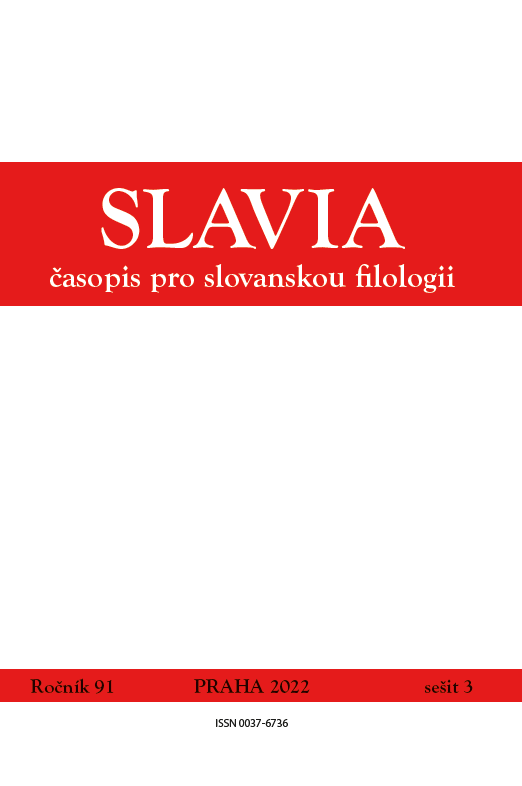Поезія як особисте одкровення: єврейська ідентичність польської поетки Зузанни Ґінчанки
Poetry as the Personal Revelation: the Jewish Identity of the Polish Poetess Zuzanna Ginczanka
Author(s): Khrystyna SemerynSubject(s): History of Judaism, Polish Literature, History of the Holocaust
Published by: AV ČR - Akademie věd České republiky - Slovanský ústav and Euroslavica
Keywords: identity; Jewish culture; Shoah; Holocaust; poetry; Polish literature;
Summary/Abstract: The article deals with the poetry of Zuzanna Ginczanka, the Polish Jewish poetess, who grew up in the Ukrainian city of Rivne, and was murdered by the Nazis in 1944. In the 1930s, she was close to “Skamander,” a prominent Polish art group gravitating towards modernist aesthetics. In the study, Ginczanka’s poetic identity with an emphasis put on her Jewish and female identities is in the focus. Although Polish identity and belonging to Polish culture had been chosen, the other components of the writer’s creative personality are being explored in her poetry. The rather hidden Jewish identity is revealed as the discourse of the Shoah being predominantly represented through a fatalistic view, the anticipation of death, and the complex and nuanced image of time. In addition, the locus of a small town, a kind of shtetl (probably, memorable Rivne) is assumed to manifest her Jewish identity, either. It is assumed in the paper that Ginczanka’s female identity might be in conflict with the Jewish beliefs based on the Old Testament; therefore, the writer frequently seeks for the “new” God, and rejects the patriarchal plots and setting such as the story of the fashioning of Eve from Adam’s rib. In support of the suggestion, Ginczanka’s “writing the body” and fundamentally “corporeal” metaphors have been analyzed. Despite that, it is emphasized that the social perception of the poetess as a beautiful Jewish woman, “Zion’s star,” “Sulamita” had problematized her status and identity. Being a poet-satirist, Zuzanna Ginczanka was the only woman in the group of male authors of “Szpilki,” a well-known Polish satirical newspaper. It should be noted that the political satire marks her as a Jewess struggling against anti-Semitism, and a woman combating patriarchal conventions and taboos.
Journal: Slavia - časopis pro slovanskou filologii
- Issue Year: XCI/2022
- Issue No: 3
- Page Range: 300-312
- Page Count: 13
- Language: Ukrainian

